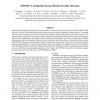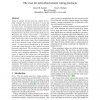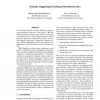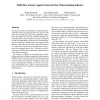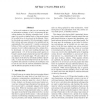USS
2008
15 years 4 months ago
2008
117
click to vote
USS
2008
15 years 4 months ago
2008
The State of Ohio commissioned the EVEREST study in late summer of 2007. The study participants were charged with an analysis of the usability, stability, and security of all voti...
105
click to vote
USS
2008
15 years 4 months ago
2008
Voting in national elections from the comfort of one's home computer may never be practical or secure, but we argue that remote network voting can be both practical and secur...
116
click to vote
USS
2008
15 years 4 months ago
2008
In this paper, we present an approach for verifying that trusted programs correctly enforce system security goals when deployed. A trusted program is trusted to only perform safe ...
123
click to vote
USS
2008
15 years 4 months ago
2008
We address the problem of auditing an election when precincts may have different sizes. Prior work in this field has emphasized the simpler case when all precincts have the same s...
107
click to vote
USS
2008
15 years 4 months ago
2008
In User-Based Network Services (UBNS), the process servicing requests from user U runs under U's ID. This enables (operating system) access controls to tailor service authori...
115
click to vote
USS
2008
15 years 4 months ago
2008
We analyze several recent schemes for watermarking network flows based on splitting the flow into intervals. We show that this approach creates time dependent correlations that en...
118
click to vote
USS
2008
15 years 4 months ago
2008
We tackle the problem of building privacy-preserving device-tracking systems -- or private methods to assist in the recovery of lost or stolen Internet-connected mobile devices. T...
USS
2008
15 years 4 months ago
2008
As the web continues to play an ever increasing role in information exchange, so too is it becoming the prevailing platform for infecting vulnerable hosts. In this paper, we provi...
USS
2008
15 years 4 months ago
2008
We explore the problem of secret-key distribution in unidirectional channels, those in which a sender transmits information blindly to a receiver. We consider two approaches: (1) ...
